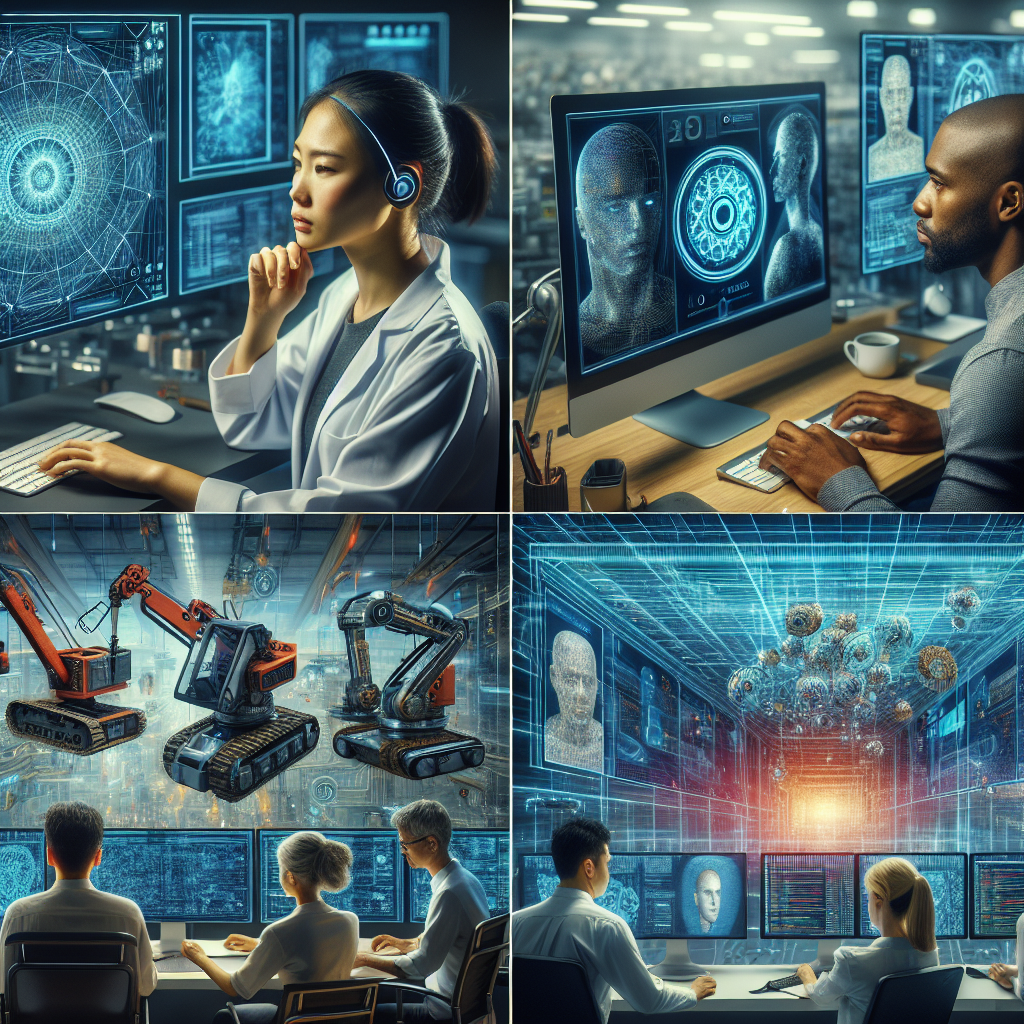Introduction
Artificial General Intelligence (AGI) has the potential to revolutionize the way we work and the nature of employment in the future. AGI refers to a form of artificial intelligence that possesses the ability to understand, learn, and apply knowledge across a wide range of tasks and domains, similar to human intelligence. With the rapid advancement of AI technology, the development of AGI is becoming increasingly plausible, raising both excitement and concerns about its impact on the workforce and employment.
In this article, we will explore how AGI could change the future of workforce and employment, examining the potential benefits and challenges that come with this technological advancement. We will also address some frequently asked questions about AGI and its implications for the labor market.
How AGI Could Change the Future of Workforce and Employment
1. Automation of Routine Tasks:
One of the primary ways in which AGI could impact the workforce is through the automation of routine and repetitive tasks. AGI systems have the potential to perform a wide range of tasks with a high level of accuracy and efficiency, leading to increased productivity and cost savings for businesses. This could result in the displacement of jobs that involve repetitive tasks, such as data entry, customer service, and manufacturing.
2. Creation of New Job Opportunities:
While AGI may lead to the automation of some jobs, it also has the potential to create new job opportunities in emerging fields such as AI research, machine learning, and robotics. As AGI systems become more advanced, there will be a growing demand for skilled professionals who can design, develop, and maintain these systems. Additionally, AGI could enable the creation of new industries and business models that we have yet to imagine.
3. Shift in Skills and Training:
The rise of AGI will require a shift in the skills and training needed to succeed in the workforce. As automation becomes more prevalent, there will be an increased demand for workers with skills in areas such as problem-solving, critical thinking, and creativity. This means that traditional roles that rely on routine tasks may become obsolete, while jobs that require human judgment and decision-making will become more valuable.
4. Impact on Unskilled Labor:
One of the potential challenges of AGI is its impact on unskilled labor. As automation becomes more widespread, jobs that require low skills and qualifications may be at risk of being replaced by machines. This could lead to increased unemployment and income inequality, as workers without the necessary skills to adapt to the changing labor market may struggle to find meaningful employment.
5. Ethical and Social Implications:
The development of AGI also raises ethical and social implications that need to be addressed. For example, there are concerns about the potential for bias and discrimination in AI systems, as well as the impact of automation on job security and income inequality. Additionally, there are questions about the accountability and transparency of AGI systems, as well as the potential for misuse and abuse of this technology.
Frequently Asked Questions
Q: Will AGI replace all human jobs?
A: While AGI has the potential to automate many routine tasks, it is unlikely to replace all human jobs. There will always be a need for human workers to perform tasks that require creativity, empathy, and critical thinking.
Q: How can workers prepare for the rise of AGI?
A: Workers can prepare for the rise of AGI by acquiring skills that are in high demand in the labor market, such as problem-solving, critical thinking, and emotional intelligence. Continuous learning and upskilling will be essential to adapt to the changing nature of work.
Q: What are the ethical considerations surrounding AGI?
A: Ethical considerations surrounding AGI include issues such as bias and discrimination in AI systems, accountability and transparency in decision-making, and the potential for misuse and abuse of this technology. It is important for policymakers, businesses, and researchers to address these ethical concerns to ensure that AGI is developed and deployed responsibly.
Conclusion
The development of AGI has the potential to transform the way we work and the nature of employment in the future. While AGI may lead to the automation of some jobs, it also has the potential to create new job opportunities in emerging fields and industries. However, the rise of AGI also raises ethical and social implications that need to be carefully considered and addressed.
As we continue to advance AI technology, it is important for policymakers, businesses, and workers to prepare for the impact of AGI on the workforce and employment. By understanding the potential benefits and challenges of AGI, we can work towards creating a future where humans and machines can coexist and thrive together.

